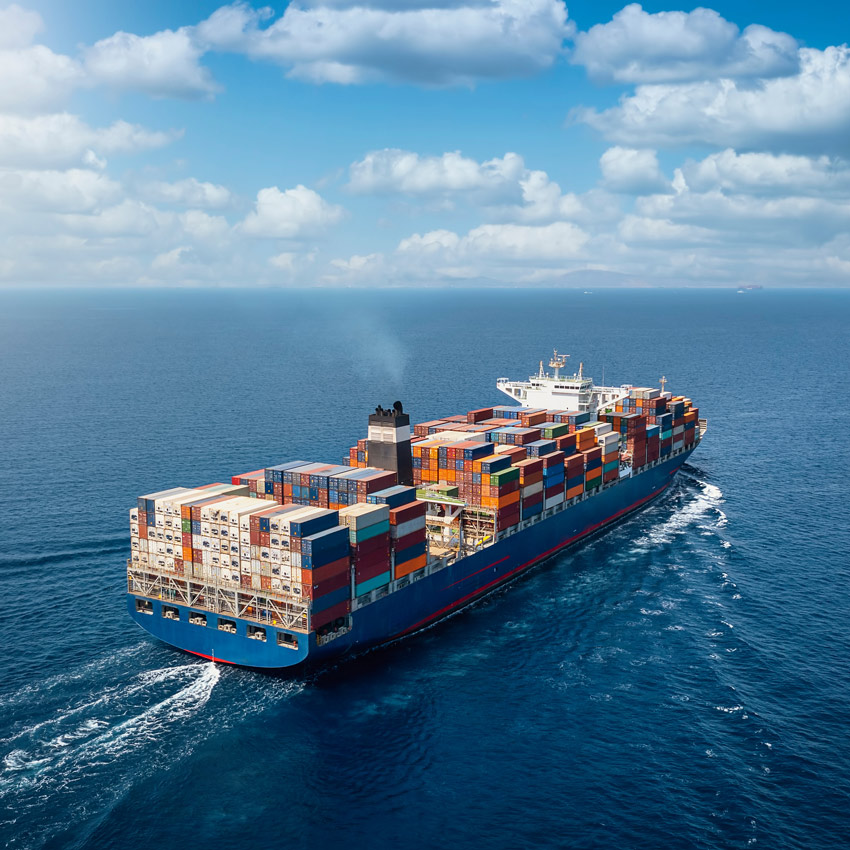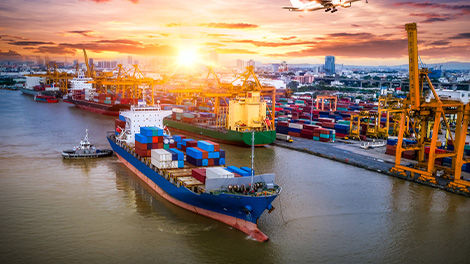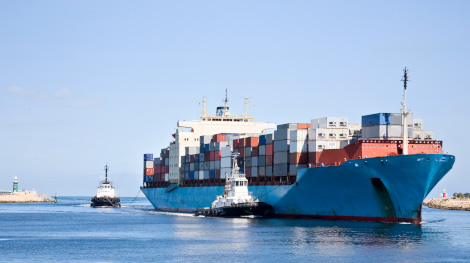
Exporting goods from the UK to the USA
Historically, the United Kingdom has been a significant trade partner with the United States of America.
While trading with the EU has become more difficult post-Brexit, the US and UK have a strong alliance founded on an excellent trading culture. The US loves British products, they have a reputation of stylishness and quality.
As of 2023, the United Nations COMTRADE database on international trade valued UK goods trade to the USA at $71.9bn. With the trading relationship growing over a long period of time, there has never been a better moment for UK companies to sell their products to the US.
That said, planning the most efficient route for your supply chain can be taxing and complex. Deciding which port you should deliver to, what incoterms fulfil your needs, and how you should transport your cargo in the first place are all difficult questions even for experienced shippers.
WTA can help; as international freight experts, we understand the complexities that come with exporting to the USA. We cover your options when transporting, the incoterms you should consider, and the relevant transit times. Then, we will show you how to prepare for US customs requirements.
Transportation options from the UK to the US
Getting your cargo from the UK to the US means using one of two basic options: sea freight or air freight. Each of these options has its advantages and complexities. We'll explore both here.
Shipping by sea freight
When shipping freight by sea, you'll need to decide whether you want to use Full Container Load (FCL) or Less than Container Load (LCL) shipping. This choice determines how your goods are stored.
Less-than-Container Load (LCL)
If you don’t have a full container load to ship, the WTA team can help. LCL can be an essential part of logistics strategy, helping you save money, minimise inventory and improve cash flow.
Full-Container Load (FCL)
A more straightforward solution, as your load will fill its own container. Our team will work with you to optimise the route according to your business objectives.
Shipping by air freight
Shipping your cargo by air has the benefit of allowing your goods to reach the US exceptionally fast. However, it's usually the most expensive option.
In general, with undercarriage paid to (CPT) incoterms, any delivery from a UK airport to the client's door will take three to four days. The collection will happen on day one, followed by screen and airport delivery on day two. Finally, the cargo will arrive on the third or fourth day.
If you've used delivered at place (DAP) or delivered duty paid (DDP) incoterms on forwarding, then delivery can take somewhat longer. Air freight delivered in this way can take an extra two to three days from arrival at the US destination airport.
WTA can service all international airports in the US, but our primary lanes from the UK are listed to the right.
Atlanta
Boston
Chicago
Houston
Los Angeles
Pittsburgh
Seattle
San Francisco
Incoterm considerations
Incoterms are widely used to define the responsibilities of the buyer and seller during the shipping process. An incoterm helps specify who manages and pays for documents. As well as who handles insurance, customs clearance, and other logistics. Here are some of the most common incoterms you might encounter exporting from the UK to the US:
DDP (Delivered Duty Paid)
This means that the seller has paid all charges. Including customs clearance as well as import duty & tax.
DDU (Delivered Duty Unpaid)
This means the seller has paid for all charges until the cargo reaches the buyer's home country. At this point, it becomes the buyers.
FOB (Free on Board)
This only applies to sea freight and means that the seller is responsible only for local charges. Once the cargo is onboard the vessel, it becomes the buyer's responsibility.
CPT/CFR (Carriage Paid To: X)
This means that the buyer is responsible up until the cargo has reached the port in the destination country. This includes local charges at origin and freight costs to the carrier. The buyer pays for all expenses from the destination point to the final location.
EXW (Ex-Works)
This means that the buyer pays for all charges from the start of the delivery to the end. The seller bears no costs and is only responsible for the packaging.
Be careful when comparing quotes from freight forwarders, as the incoterms can have a big impact on price.
A freight forwarder will offer a better rate on FOB incoterms than on Ex-Works. But on FOB they won't include the costs of getting the goods to the ship, whereas ex-works will include the entire shipment.
Our sample of UK to US transit times (port to port)
London Gateway to New York
London Gateway to Los Angeles
Liverpool to New York
Liverpool to Norfolk
Southampton to New York
Southampton to Seattle
Felixstowe to Boston
Felixstowe to Los Angeles
Customs and compliance
Additionally, before shipping your product to the US, you need to ensure you meet all legal requirements. Make sure to know your product's correct Harmonised System (HS) code and investigate any specific regulations. This can help to ensure seamless customs clearance.
The US Food and Drug Administration (FDA) enforces additional rules on the packaging and contents of food, drinks, drugs, medical devices, and cosmetics. These regulations can change depending on the state you're exporting to. This can have the potential to get complicated.
There is a lot to deal with and plan for, which isn't a process most companies can make on their own. However, by partnering with an experienced shipper like WTA who can handle your customs clearances, these challenges can be overcome.
Additional resources for Exporting from the UK.
Export your way out of recession
Discover how to maintain growth in your business whilst tackling a downturn in the economic climate.
What the UK-Australia trade deal means for your exports
How businesses can benefit from the UK's new free trade deal with Australia and New Zealand.
10 tips for exporting product out of the UK
Read our 10 quick tips to achieve maximum efficiency with your exports.











